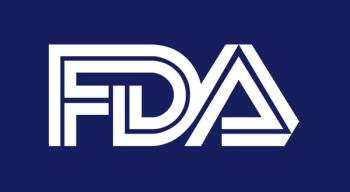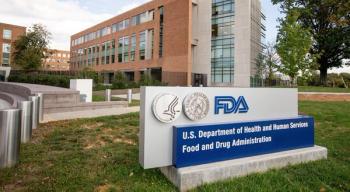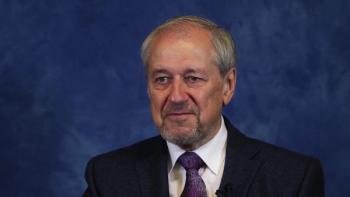
Researchers presented data at the 2017 ASH annual meeting about their new personalized MDS prediction model that uses clinical and genomic data to help better guide therapy and improve outcomes compared with other models.

Your AI-Trained Oncology Knowledge Connection!


Researchers presented data at the 2017 ASH annual meeting about their new personalized MDS prediction model that uses clinical and genomic data to help better guide therapy and improve outcomes compared with other models.

At the 2017 ASH annual meeting, investigators presented data on the pharmacodynamic effects of copanlisib in patients with NHL and solid tumors that showed dose-dependent on-target activity with the drug.

A long-term analysis of the FOLL05 trial found favorable outcomes at 8 years in advanced-stage follicular lymphoma patients treated with three different rituximab/chemotherapy combinations.

Elevated pre-transplant C-reactive protein was associated with worse overall survival in patients who underwent autologous stem cell transplantation for multiple myeloma, particularly in those who had transplant more than 12 months after diagnosis.

Integrating genetic risk factors with minimal residual disease improves the accuracy of risk stratification for children with acute lymphoblastic leukemia.

Treatment with bosutinib resulted in improved outcomes for patients with chronic-phase chronic myeloid leukemia compared with treatment with imatinib.

In this podcast interview, Dr. William Wierda discusses the role of venetoclax in treating patients with chronic lymphocytic leukemia, particularly in light of recent trial results.

The FDA has expanded the approval of vemurafenib (Zelboraf) to include the treatment of Erdheim–Chester disease in adult BRAF V600–positive patients. This marks the first approval from the agency for treating this rare blood cancer.

The BCL-2 inhibitor venetoclax had an acceptable safety profile and showed evidence of activity in patients with relapsed/refractory multiple myeloma.

In patients with chronic myeloid leukemia treated with bosutinib who were resistant or intolerant to previous tyrosine kinase inhibitors, health-related quality of life was well maintained over the long term.

A team of investigators from multiple institutions has proposed new guidelines for monitoring, grading, and managing the side effects of CAR T-cell therapy.

A team of investigators from multiple institutions has proposed new guidelines for monitoring, grading, and managing the side effects of CAR T-cell therapy.

Researchers have discovered that genetic mutations associated with Fanconi Anemia may also result in a higher risk for certain cancers, even in patients who don't exhibit symptoms of the disease.

In this interview with Jorge Cortes, MD, he discusses why gemtuzumab ozogamicin is experiencing a comeback for the treatment of patients with acute myeloid leukemia.

Researchers have developed a model that has prognostic value in predicting favorable or unfavorable responses to immunomodulatory derivatives in patients with multiple myeloma.

Characteristics of the diabetic intrauterine environment may promote the development of acute lymphoblastic leukemia in offspring, according to the results of a new study.

A study by German investigators is elucidating the role of tyrosine kinase inhibitors in targeting FLT3 in acute myeloid leukemia.

About one in every 25 patients with chronic lymphocytic leukemia had abnormal liver function tests, and one in four developed liver dysfunction within 10 years, according to the results of a retrospective study.

Survival of patients with myelofibrosis who undergo splenectomy is adversely affected by older age, the need for transfusion, and leukocyte and circulating blast cell counts, according to a new analysis.

Non-Hodgkin lymphoma patients who have preexisting cardiovascular risk factors are at an increased risk of heart failure and are often prescribed anthracyclines less frequently, according to a large population-based study.

The phase III ALCYONE study showed that daratumumab in combination with bortezomib, melphalan, and prednisone is a viable front-line option for myeloma patients who are not candidates for ASCT.

The FDA has released a statement regarding safety concerns that led to a clinical hold on three trials of pembrolizumab in combination with pomalidomide or lenalidomide for patients with multiple myeloma, and the active role of the FDA in protecting patient safety.

Researchers at St. Jude Children’s Research Hospital have discovered a vulnerability that may easily translate into new targeted drug therapies that block heme biosynthesis, killing leukemic cells.

This video highlights patient variables, including kidney function or history of diabetes, that can help guide treatment in chronic myeloid leukemia.

In this interview we discuss the link between breast implants and anaplastic large-cell lymphoma, a rare type of T-cell lymphoma.